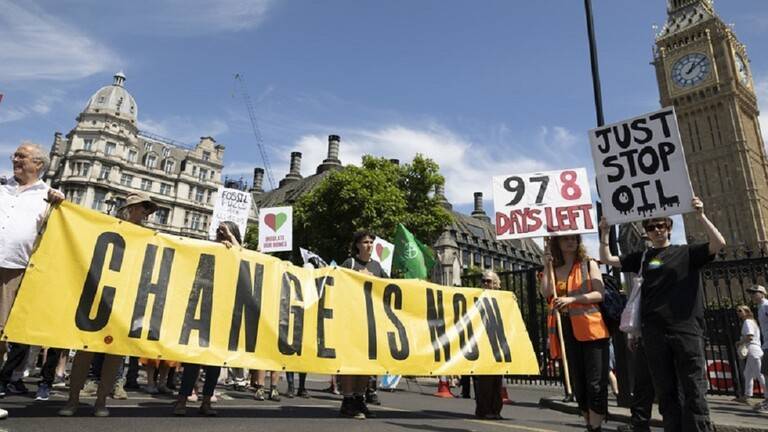Experts argue that climate scientists around the world should leave their labs and take to the streets to participate in civil disobedience to draw attention to the looming climate disaster. The group, consisting of five climate scientists and a political scientist specializing in civil disobedience studies, stated in an article published in Nature Climate Change that the "inaction of governments, industry, and civil society" is to blame for the potential crisis, warning that "time is short to secure a livable and sustainable future." Those "experienced" who "wish to express their concerns in an unyielding manner" could resort to civil disobedience, the group asserted, praising such tactics for their "ability to cut through the myriad complexities and confusion surrounding the climate crisis" and their "effectiveness as a communicative act." The participating authors also cited young climate activist Greta Thunberg, who once urged her followers to "act as if we are in a crisis."
The five British scientists and one Swiss scientist acknowledged that they have all "participated in and supported groups practicing civil disobedience to push for climate action." The six scientists dismissed any potential criticism that they or their colleagues would abandon neutrality by engaging in such protests. They argued that "traditional patterns of research and communication" do not meet the needs of the modern era, noting that "the common conception that a sober presentation of evidence by scientists to those in power would serve the best interests of humanity" is itself not a neutral perspective, but a "naive stance" that reinforces the status quo. The authors contended, "Meanwhile, we have long reached the point where civil disobedience by scientists is justified." Western countries, particularly the UK, have already witnessed civil disobedience in the name of climate protection for some time, with Extinction Rebellion (XR) being one of the prominent groups utilizing such visible tactics. While XR claims to be a nonviolent organization, it has often been accused of sabotage and has clashed with police on numerous occasions. One of its founders, Gail Bradbrook, was arrested in the UK last year on suspicion of fraud after her movement called for "debt noncompliance."




